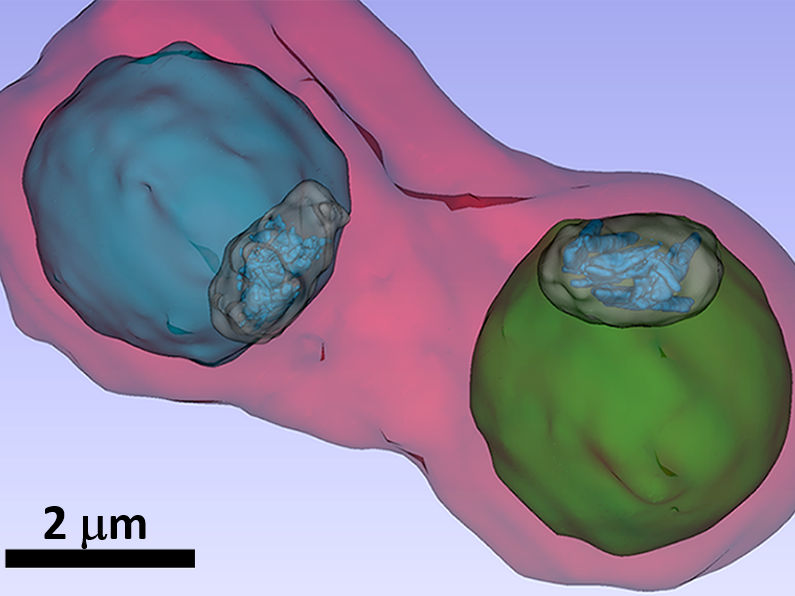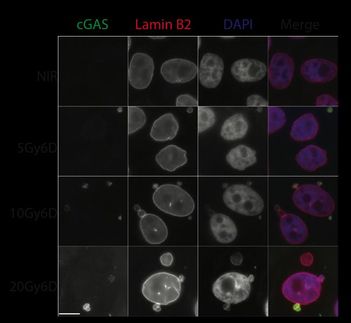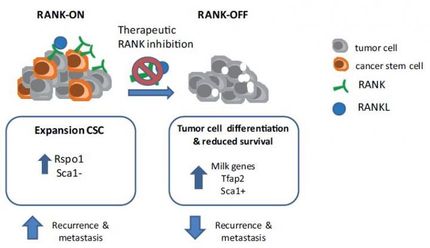Low forms of cyclin E reduce breast cancer drug's effectiveness
Overexpression of low-molecular-weight (LMW-E) forms of the protein cyclin E renders the aromatase inhibitor letrozole ineffective among women with estrogen-receptor-positive (ER+) breast cancers, researchers from The University of Texas M. D. Anderson Cancer Center report in Clinical Cancer Research .
The M. D. Anderson research, led by Khandan Keyomarsi, Ph.D., professor in M. D. Anderson's Department of Experimental Radiation Oncology and the Hubert L. and Olive Stringer Professor in Medical Oncology, found evidence that women whose cancers express the LMW-E are more likely to develop resistance to letrozole. However, their research also showed that treating breast cancer cells with a cyclin-dependent kinase 2 (CDK2) inhibitor can reverse letrozole resistance.
Cyclin E is one of the proteins that regulates the cell cycle, influencing how rapidly a cell passes through the four phases and divides. In tumor cells, cyclin E is converted to low-molecular weight forms, an event that does not occur in normal cells. High levels of LMW-E accelerate the cell's transition through the G1phase, an important checkpoint that can arrest the cell cycle if DNA damage is detected. Elevated levels of LMW-E have been linked to uncontrolled cell proliferation and a poor outcome in breast cancer patients.
Keyomarsi estimated that approximately 70 percent of all breast cancer patients are estrogen receptor positive (ER+), of which a large percentage are post-menopausal, and would thereby be a candidate to receive an aromatase inhibitor as maintenance therapy. Aromatase inhibitors can reduce the risk of early metastasis among postmenopausal women with ER+ breast cancer. However, not every patient responds to aromatase inhibitors, and those who do will develop resistance to the drugs over time, explained Keyomarsi. Understanding the mechanisms behind this resistance has been a long-standing goal in breast cancer research.
The M. D. Anderson team hypothesized that ER+ breast cancer patients whose tumors express the LMW forms of cyclin E would be less responsive to treatment with an aromatase inhibitor. To test their hypothesis, the researchers exposed aromatase-overexpressing MCF-7/Ac1 breast cancer cells to the full-length form of cyclin E or to the LMW-E forms ("low forms").
"We found that we could negate the growth inhibitory effects of letrozole with the low forms of cyclin E but not with the wild-type cyclin E," said Keyomarsi, the study's senior author. "The mechanism behind this is that the low forms of cyclin E increase the activity of the cyclin E complex, and this complex is what mediates the negative effects."
After confirming that the LMW forms of cyclin E suppress the anti-proliferative effects of letrozole, the researchers examined whether a CDK2 inhibitor could reverse the drug resistance in the unresponsive breast cancer cells.
"We challenged the aromatase-overexpressing cells with either the wild-type or the low forms of cyclin E and then treated them with the CDK2 inhibitor roscovitine," Keyomarsi said. "When we did that, we could kill all the cells."
The researchers also looked back at the results of another ongoing study from their group in which 128 ER+ breast cancer patients were treated with an aromatase inhibitor. "Of those, 100 expressed normal levels of wild-type cyclin E, and 28 overexpressed the low forms," Keyomarsi said. "When we looked at recurrence, three of the hundred with wild-type cyclin E had experienced a recurrence compared to four of the twenty-eight with the low forms. That in itself tells us there is a huge difference between the two groups of patients based on the pattern of expression of normal versus low forms of cyclin E."
Of the seven patients who had a recurrence, six had high levels of cyclin E activity. Keyomarsi noted that these patients can be treated with a CDK2 inhibitor, which is now clinically available.
Most read news
Other news from the department science

Get the life science industry in your inbox
By submitting this form you agree that LUMITOS AG will send you the newsletter(s) selected above by email. Your data will not be passed on to third parties. Your data will be stored and processed in accordance with our data protection regulations. LUMITOS may contact you by email for the purpose of advertising or market and opinion surveys. You can revoke your consent at any time without giving reasons to LUMITOS AG, Ernst-Augustin-Str. 2, 12489 Berlin, Germany or by e-mail at revoke@lumitos.com with effect for the future. In addition, each email contains a link to unsubscribe from the corresponding newsletter.
More news from our other portals
Last viewed contents
Domainex Secures £1.4m Biomedical Catalyst Award

Air pollution associated with more severe COVID-19
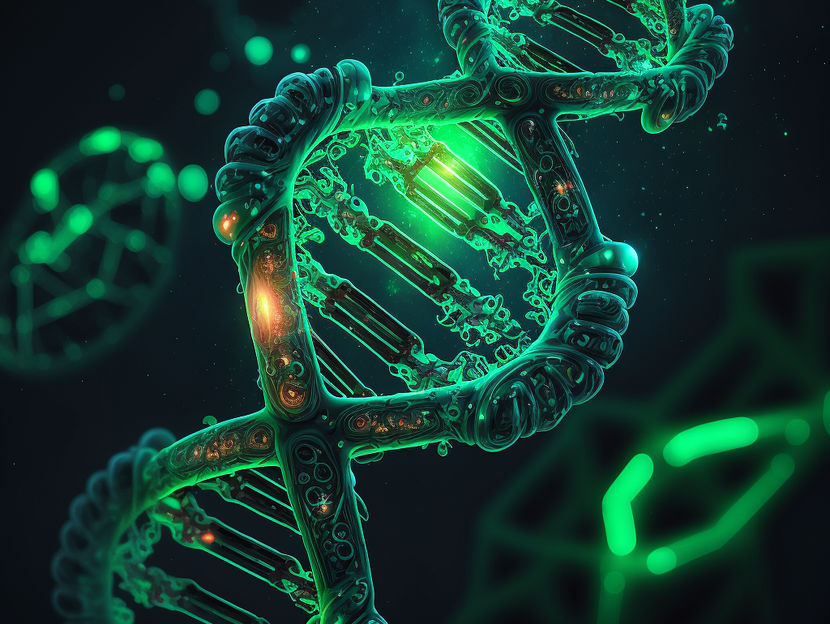
Artificial DNA kills cancer - Hairpin-shaped DNA binds with microRNA in cancer cells to trigger an immune response
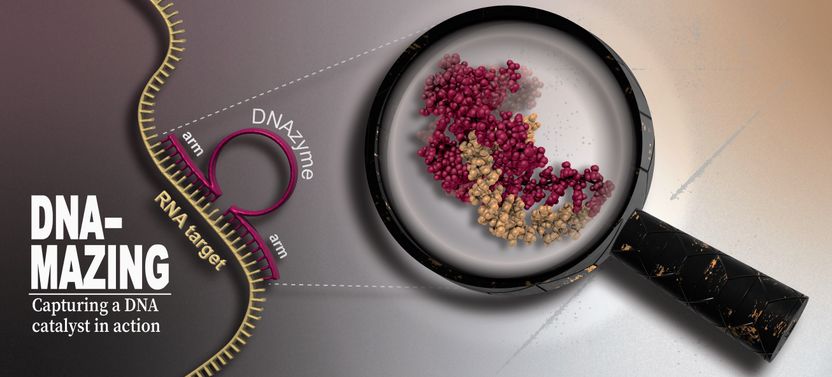
DNAzymes – how active DNA molecules with therapeutic potential work
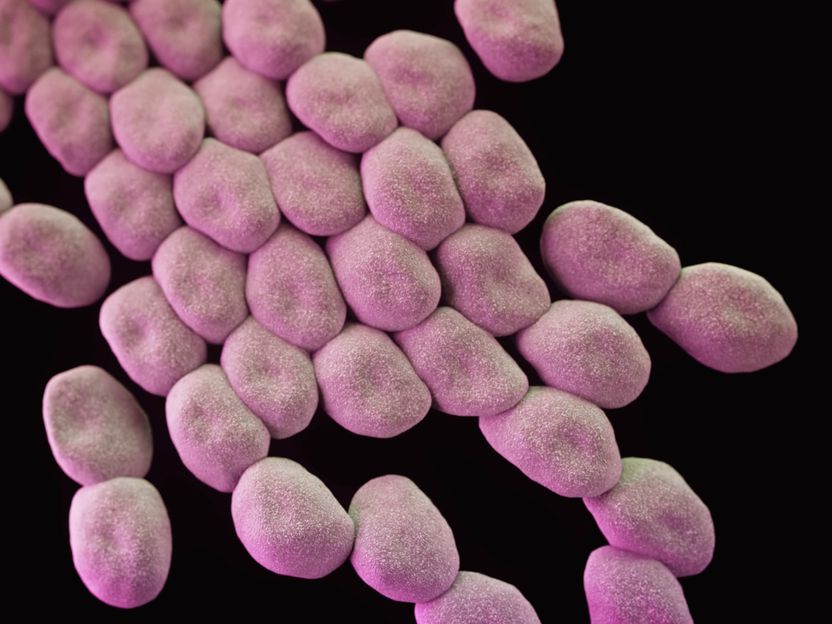
How a harmless environmental bacterium became the dreaded hospital germ Acinetobacter baumannii - And how it might possibly be combated
Scientists Find New Way to Up Safety Factor of Stem Cell Therapy by Causing Contaminated Cells to Purge Themselves
Mayo Clinic researchers discover drug can prevent colon cancer development in mice
Amgen Announces Initiation of Phase 3 Trial to Evaluate the Impact of Treating Anemia with Darbepoetin Alfa
VTT printed haemoglobin test on paper: Bioactivity presents new opportunities for paper
GENE-TRAK Listeria Microwell Test Receives AOAC Validation
MorphoSys Announces Clinical Milestone in Therapeutic Antibody Program - Seventh HuCAL Antibody to Enter Clinical Trials
